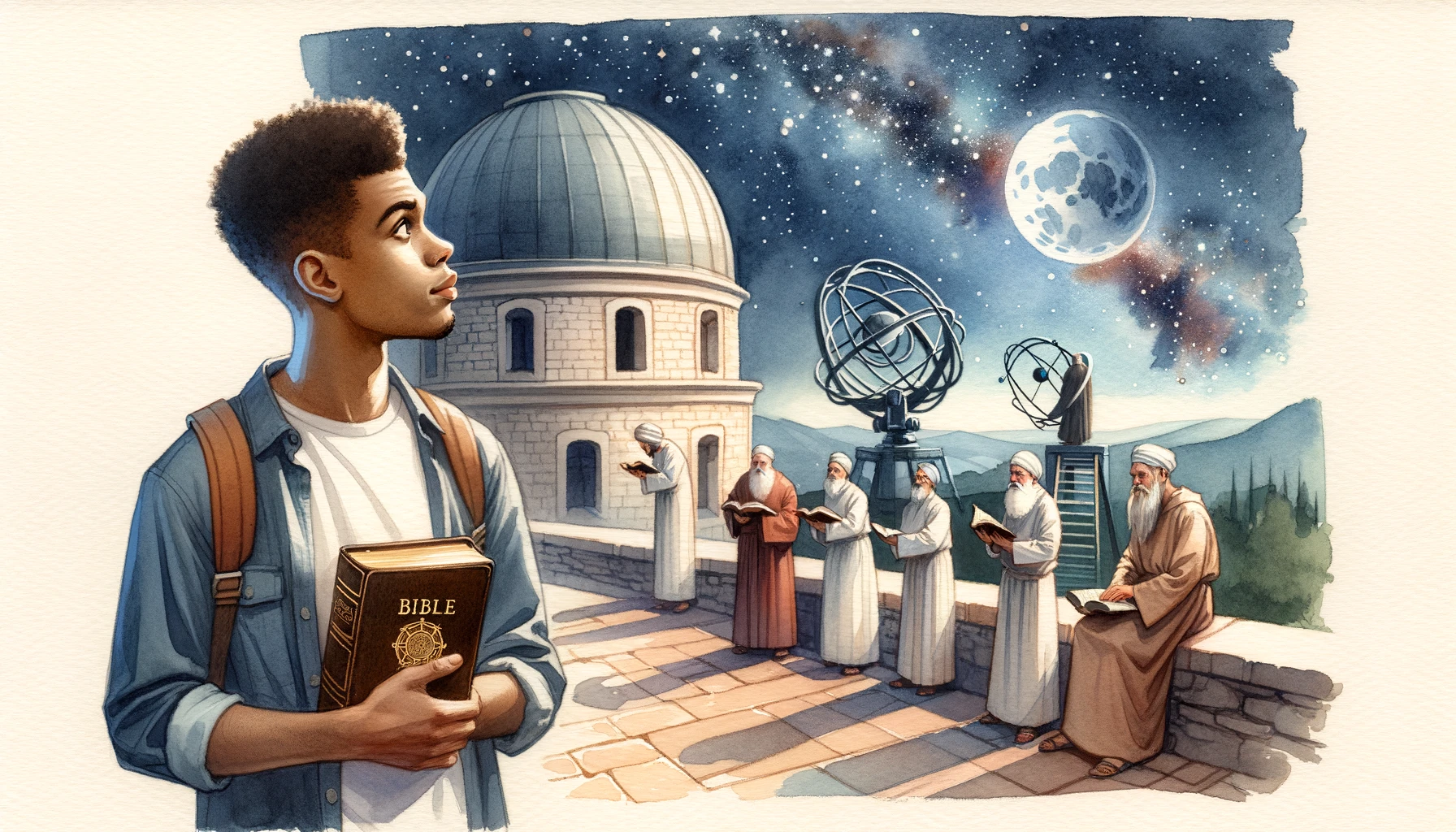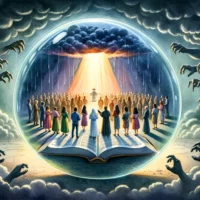In the vast tapestry of human thought and beliefs, astrology has found a prevalent place, offering answers to questions about destiny, personality traits, and future events. Rooted in ancient civilizations, this practice has persisted, capturing the curiosity of many. However, when we look at the biblical perspective, astrology presents significant discrepancies that prompt a careful evaluation.
Astrology Defined and Its Historical Context
Astrology finds its roots in antiquity. Dating back thousands of years, it was practiced by some of the earliest civilizations, including the Babylonians, Greeks, and Romans. Astrology attempts to predict human character traits and destiny based on the alignment of the stars and planets at the time of birth. A complex system of charts called horoscopes serves as the primary tool for these predictions.
Astrological systems differ across cultures, but most share a common belief in celestial influence over earthly events. Zodiac signs, the twelve constellations through which the sun appears to move over the course of a year, play a central role in astrological practices. Each sign supposedly embodies specific characteristics imparted to individuals born under them.
Historically, astrology was not only personal but also political. Kings, emperors, and rulers frequently consulted astrologers for guidance in making important decisions, believing that the stars could influence the fate of nations (Daniel 2:2).
A key feature of astrology is its deterministic nature. Astrologers hold that an individual’s personality and fate are predetermined by the celestial bodies’ position at the time of their birth. This presents an element of fatalism, suggesting that humans have limited freedom and control over their lives.
Despite its ancient origins, astrology has endured and even gained popularity in modern times. The advent of the internet has led to an explosion of astrological content available at the click of a button. Horoscopes can be found in newspapers, magazines, and various websites, eagerly consumed by those seeking guidance, insight, or simple curiosity about their lives.
Astrology is a belief system that traces back to ancient civilizations. It revolves around the concept that the stars and planets’ positions at an individual’s birth time determine their personality and destiny. The zodiac, a cycle of twelve signs based on constellations, is a fundamental element in astrology. Throughout history, astrological counsel was sought not only by individuals but also by leaders in their decision-making processes. Its deterministic view of human life contrasts with the biblical emphasis on individual choice and divine guidance.
The Biblical View on Destiny and Guidance
Destiny and guidance hold a unique place in biblical theology, fundamentally different from astrology’s viewpoint. According to the Bible, human beings are not mere pawns of celestial mechanics. Instead, we are made in the image of God, possessing moral agency, personal freedom, and intrinsic worth (Genesis 1:27).
The Bible underscores the role of divine guidance in our lives. The idea that God has a plan for each individual is pervasive throughout the scriptures. Unlike astrology’s deterministic outlook, the biblical perspective affirms that we have a part to play in our destiny. God invites us to actively engage with His plans, not merely submit to them as fixed fate (Jeremiah 29:11-13).
The Bible also teaches that our actions, choices, and decisions matter, with eternal consequences. Unlike the astrological belief of fate being inscribed in the stars, biblical teachings affirm that our choices shape our destiny (Galatians 6:7-8). This emphasis on personal responsibility is a cornerstone of Christian ethics.
On the topic of guidance, the Bible clearly directs believers to seek wisdom and direction from God rather than celestial objects. Scriptures encourage us to pray, study God’s word, and be led by the Holy Spirit in making decisions (James 1:5, Psalm 119:105, Romans 8:14). Unlike astrology, which externalizes guidance, the biblical approach internalizes it, making it a matter of personal relationship with God.
Another point to consider is that the Bible attributes all power and authority to God alone, who created the heavens and the earth (Genesis 1:1). In this view, the stars and planets are part of God’s creation, not forces that control our lives or destiny. They declare the glory of God but do not dictate the course of human events (Psalm 19:1).
The biblical view of destiny and guidance contrasts sharply with astrology. The Bible emphasizes our intrinsic worth as beings made in God’s image, endowed with moral agency and freedom. It upholds that our choices, not celestial mechanics, shape our destiny. For guidance, scriptures encourage seeking wisdom from God through prayer, studying His word, and following the Holy Spirit. The stars and planets, in biblical perspective, are God’s creation, declaring His glory without determining human events or futures.
Astrology Versus Faith: Inherent Contradictions
When placing astrology and Christian faith side by side, inherent contradictions come to the fore. Chief among them is the idea of authority. While astrology gives credence to celestial bodies for their influence over human lives, the Christian faith recognizes God as the ultimate and only authority over all creation (Colossians 1:16-17).
Astrology’s deterministic worldview starkly contrasts with the biblical affirmation of human free will. Astrology proposes that an individual’s life path is predestined by the stars at their time of birth. On the contrary, the Bible suggests that while God has a plan for each person, we have the freedom to make choices that influence our destiny (Joshua 24:15).
Another contrast lies in the source of guidance. Astrology advocates for guidance based on horoscopes and the position of stars and planets, externalizing the process. The Bible, however, encourages believers to seek guidance internally, through a personal relationship with God by praying, studying scripture, and being attentive to the Holy Spirit (John 16:13).
The Bible presents a personal God who is intimately involved in our lives, who loves us, and who cares about our joys and sorrows (Psalm 34:18). Astrology, with its focus on impersonal cosmic forces, does not offer this dimension of a caring and personal relationship.
Astrology also implies a level of divination, seeking knowledge of the future through supernatural means, which the Bible consistently warns against (Deuteronomy 18:10-12). Instead, the Christian faith urges believers to trust God’s sovereignty and goodness for our future, living each day in faith and obedience.
The Christian faith promotes humility, recognizing our limited understanding and need for God (Proverbs 3:5-6). Astrology, by promising insight into the future and a deterministic understanding of one’s life, can subtly foster an attitude of self-sufficiency and a lack of reliance on God.
Astrology and the Christian faith exhibit substantial contradictions. The Bible emphasizes God as the only authority, encourages believers to exercise free will, and urges seeking guidance through a personal relationship with God. The personal and caring nature of God in Christianity starkly contrasts with the impersonal cosmic forces in astrology. The Bible warns against divination, suggesting instead to trust in God’s sovereignty for our future. While astrology can subtly foster self-sufficiency, Christian faith calls for humility and dependence on God.
Navigating the Celestial Crossroads
Astrology, with its mystical allure and promises of cosmic insight, can seem appealing, but it presents a conflicting worldview when contrasted with the teachings of the Bible. Our faith, rooted in a personal God who loves us and cares for us, puts forth a different vision of our destiny and our place in the cosmos. This vision isn’t influenced by the stars and planets but by our relationship with God and our choices.
- How do my beliefs about destiny and guidance align with the Bible’s teachings?
- Do I rely on external elements like horoscopes for direction or do I seek guidance from God through prayer and studying scripture?
- How can I cultivate a deeper reliance on God rather than on external circumstances or influences?
As believers, we are not left wandering in the cosmic wilderness, looking to the stars for direction. We have a compass in our relationship with God, His Word, and the guidance of the Holy Spirit. The heavens declare God’s glory, not our destiny. Let’s keep our eyes, not on the stars, but on the One who made them.














